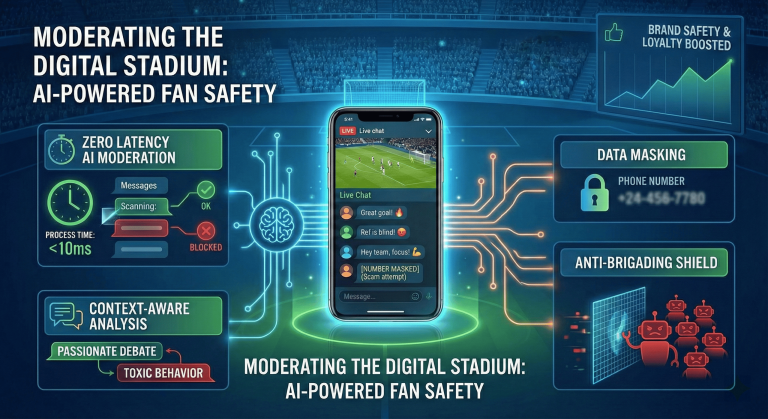Learn how AI Apps are helping science and academic research across the world

Artificial Intelligence is promising to transform scientific and academic research: faster, more efficiently, and with less bias. From automating literature reviews to enhancing data analysis, AI offers a suite of tools that improve quality and efficiency, creating new hypothesis and detecting plagiarism and conflict of interests. This article highlights the practical examples of how AI Apps are helping science and making a difference in the field.
Key Points
- AI automates tasks, enabling researchers to focus on analysis and innovation.
- AI-powered data analysis speeds up processing and uncovers hidden insights.
- AI tools help maintain academic integrity by detecting plagiarism.
- AI streamlines literature reviews and research data management.
- AI is expanding its reach into hypothesis generation, experiment design, and personalized learning.
Automating academic research tasks
AI’s primary strength lies in reducing manual tasks like data analysis, research paper writing, and summarizing extensive documents. AI PDF summarizers are gaining popularity among researchers and students. These tools can scan hundreds of pages of scientific text, highlighting key points. This is invaluable for literature reviews, a cornerstone of research. Instead of spending days reading and summarizing articles, an AI PDF summarizer saves time, allowing researchers to focus on data analysis and hypothesis formulation.
Beyond efficiency, these tools enable researchers to better organize vast amounts of information. As AI becomes integral to university and research libraries, access to information and analysis tools will increase, streamlining the academic process.
AI for data analysis in scientific research
Data analysis is the first step in quality scientific research. Previously, researchers manually sifted through large datasets, a time-consuming and error-prone process. AI has automated data analysis, processing raw data in minutes and delivering results that once took weeks. AI algorithms identify patterns or anomalies in massive datasets, ensuring precision in scientific publishing. Scholars are no longer limited to spreadsheets; they can now use AI to build sophisticated data representations, making research conclusions more understandable and shareable.
Tools like IBM Watson, Google’s TensorFlow, and specialized AI apps for genetics, physics, and environmental analysis are used for statistical analysis and model-building. AI-powered automation enhances efficiency and leads to more precise conclusions, ensuring research data is reliable and informed.
AI as a plagiarism detector
Academic misconduct, particularly plagiarism, is a significant concern. AI-based plagiarism-checking tools like Turnitin, Grammarly, and Quetext scan documents and compare them to vast databases of published works. AI algorithms even detect paraphrasing, promoting proper citation and protecting academic integrity. These tools have become commonplace in universities worldwide.
Enhancing literature review and research process
AI significantly impacts literature reviews. AI-based research tools search thousands of papers in seconds, providing tailored recommendations. This saves time and ensures no crucial paper is overlooked. Applications like Semantic Scholar, Consensus and ResearchGate offer personalized article suggestions, and generate citations and references. AI excludes irrelevant research, minimizing the chance of missing vital information.
Leveraging open-access scientific databases and free AI platforms makes comprehensive literature reviews easier than ever. AI assists with research and document management, listing sources, creating bibliographies, and updating them as new papers are published.
AI and research data management
AI-powered research data management tools help researchers organize and retrieve data efficiently. AI categorizes and tags data based on content. For instance, AI analyzes raw data in real-time, highlighting important sections and suggesting organization methods. This ensures clean, well-organized datasets, vital for reproducibility in science.
Platforms like Zenodo and Figshare enable researchers to share data publicly. AI makes these datasets more accessible by categorizing them based on keywords, research fields, and metadata.
Other ways AI will change academic work, education and research

Hypothesis Generation: AI is not merely an assistant; it’s becoming a collaborator in the scientific process. By sifting through immense datasets, AI can discern patterns and correlations that might elude human researchers, sparking new hypotheses and research avenues.
Experiment Design: Gone are the days of trial-and-error experimentation. AI algorithms are now capable of simulating and optimizing experimental parameters, increasing the efficiency and success rates of scientific investigations.
Accelerating Drug Discovery: AI is transforming the pharmaceutical industry by rapidly analyzing molecular structures and predicting their interactions, significantly speeding up the identification of potential drug candidates and reducing development costs.
Refining Scientific Communication: AI-powered tools are not only aiding research but also enhancing its communication. They can help researchers write clearer and more impactful papers by offering suggestions for phrasing, grammar corrections, and ensuring consistency.
Strengthening Peer Review: Peer review, a cornerstone of scientific publishing, is also benefiting from AI. AI tools are being developed to identify potential conflicts of interest among reviewers and even to assess the quality and novelty of submitted manuscripts.
Personalized Learning Experiences: In academia, AI is personalizing the learning process. Adaptive learning platforms leverage AI to tailor content and pacing to individual student needs, optimizing engagement and knowledge retention.
Closing remarks
AI is not merely changing the face of science and academia; it’s revolutionizing the very core of how knowledge is generated, shared, and applied. From automating mundane tasks to catalyzing groundbreaking discoveries, AI empowers researchers and students to reach new heights of productivity and innovation. While challenges remain, embracing AI’s potential promises a future where knowledge is more accessible, research is more efficient, and the pursuit of truth is accelerated.




